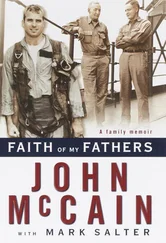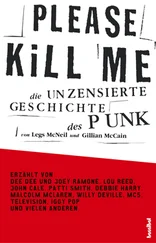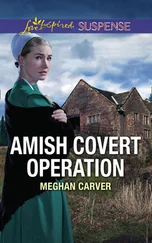I walked into the kitchen, looking for Dad. I was told to go out on the balcony in the other room. He needed to talk to me. When I found him, my brothers, Jack and Jimmy, and my sister, Bridget, were already there.
Dad pulled us into a semicircle, like a huddle before a football game. I was hoping that this was some kind of sign that he knew a secret—a poll or voting area that hadn’t been reported.
No, that wasn’t it.
“Look, guys,” he said. “It seems we’re not gonna win this thing.” That was it. I don’t remember a lot else, except I thought I’d lose it immediately but I didn’t. I hugged my father, told him how proud I was of him, and just walked straight out the door like a robot. I went downstairs to the other apartment, where Shannon and Heather and Josh were waiting, and I told them what happened.
“What?”
“It’s only five o’clock!”
Polls hadn’t closed; people were still voting all over the country, pulling the lever for my dad. But the campaign’s internal polling was already sure that he had lost.
I hated the way it was ending. Election nights are supposed to go on and on. You were supposed to be up until the middle of the night, dead on your feet and still waiting to hear the news.
Five in the afternoon wasn’t the way it happened.
The sun wasn’t even down.
My dad hadn’t even eaten dinner.
What about Florida? And Ohio? What the hell happened in Ohio? I knew that state so well; it felt like I’d been to every single county, every small town and city, traveled on every highway, byway, service road, visited every possible Cracker Barrel, Olive Garden, and Applebee’s, and met with God only knows how many people.
What about Ohio?
I hadn’t seen this coming—at all. Even in my darkest moments, I figured we had a great chance to win because my dad was so obviously the better choice, the more experienced and dependable leader. Everywhere we went people had been so excited about the election, and excited about my dad. Those conga lines in Miami, the screaming crowds in Indianapolis. Even in the desperate pitch of the stupid seven-city tour of nonstop rallies, deep down I believed that we couldn’t lose.
The feeling of heartbreak was so crushing, so painful, and I blamed myself for not being better prepared for it. If only I were more thick-skinned. Maybe that way I’d be inoculated from ever feeling this wounded again.
What about friggin’ Ohio?
The only thing that I remember doing between five o’clock, when the news of our defeat began to drill its way into me, and the time that I was due back upstairs to regroup with my family for an appearance at the Arizona Biltmore, was holding Melissa’s hand. I grabbed Melissa’s hand and never let it go.
ON THE WAY BACK TO MY PARENTS’ APARTMENT, UPSTAIRS, I broke down in the hallway where the Secret Service were standing, and it made it so much worse that they’d seen me like that.
Upstairs, my dad called out for everybody—family and campaign staff—to gather in one room and he thanked them for the great work they had done for him, and for “just being there.” With a calm voice and no sign of being devastated, he even remembered to thank the Secret Service, which really got me. They were nowhere near the top of my thank-you list, but of course, my dad included them too.
Outside, there was a lineup of big SUVs waiting at the curb. My parents got in the first one, along with Lindsey Graham and me. Just looking at Lindsey made me fall apart, and I started crying on his jacket sleeve.
Somebody mentioned being upset about the Hispanic vote going to Obama. During the early parts of the campaign, my father took hits for his stance on immigration, and Lindsey was right there with him. Some people even started writing “José McCain and Lindsey Gomez” on protest signs. This seemed to be the final sting for Lindsey and Dad. Nobody had seen that one coming.
As we turned into the Arizona Biltmore, a crowd of Obama supporters were standing on a corner with big Obama signs and jeering at our motorcade. They were so pumped up, feeling so good, but somehow still so angry. It was unimaginable to me how anyone would wait for us on the street so they could rub in their victory like that—and glare at the losers.
When I started to lose it again, my parents said, “Enough crying.” Whatever happened, they told me not to cry in public—onstage or anywhere else. I had to be strong for my mom and dad and my younger siblings. I had to be dignified and not hand the media an opportunity to photograph me with tears streaming down my face. I thought of those jerks on the corner, jeering at us with their Obama signs, and I didn’t want them to find a way to have more glory from our loss.
I asked God for help.
He heard me. Nobody saw me cry for the rest of the night.
Crowds were waiting for us at the hotel, and began clapping as we were ushered on foot to a private bungalow that the campaign was using for the night. The grounds of the Arizona Biltmore are beyond gorgeous—sprawling, manicured, three dozen acres of tamed Arizona desert. People were lined up along the pathways clapping. The hotel staff was gathered, and clapping. My dad led the way, and I could only see the back of his head, glimpses of him in the excitement.
Inside the bungalow, I saw Sarah Palin standing in the kitchen. She looked stunning in a deep blue dress with her hair pulled half up and half down, her signature semi-beehive style. I stopped to play with little Piper for a while. She was happy and jumping around, like most seven-year-olds, and didn’t seem to know that we’d lost. I sure didn’t want to be the one to tell her.
While I talked with Sarah, she was holding some papers in her hand, a speech, I assumed.
“Are you going to speak?” I asked her.
“I want to,” she said, “but others don’t agree.”
“You look beautiful,” I said.
When it came time for my father’s concession speech, we had a long walk ahead of us—five minutes that seemed like an hour—to a place on the Biltmore grounds where a stage had been erected. I grabbed my little sister Bridget’s hand. I remember gripping tightly as we walked together. There was more clapping, and more people lined up along pathways.
The warm welcome felt nice, but only momentarily. Looking ahead at my dad, I couldn’t help but think about how this country that he loved so much, more than anything else in life, and had given so much to—this unbelievably intoxicatingly amazing country—did not want him.
It did not want my old father. It did not want my mother, whom it had never really known. It didn’t want my brothers in the military or my beautiful soul of a sister. And it didn’t want me—an over-bleached glitter girl in a too-happy gold dress on such a sad night. The rejection didn’t feel intellectual or philosophical. It didn’t seem like a bunch of ideas or a political party had been rejected. It felt really personal. It felt like us. We had been rejected. And the pain of this was a complete assault on my emotions and senses.
My dad wasn’t enough and we weren’t enough—not interesting or evocative or beautiful enough. And we weren’t new.
I cracked a few jokes to push this out of my head. I made jokes about anything and everything. They were like old friends, these jokes. And they would get me through—I knew they would. And they would make Bridget feel better too.
“At least the Secret Service won’t have to put up with me anymore.”
“At least I will never have to eat a Snickers bar for breakfast again.”
I could hear Bridget giggling, softly.
“I’ve gained so much weight that my Spanx are breaking at the seams.”
Out of nowhere, Steve Duprey, the owner of the Concord Marriott, appeared and grabbed my hand. How did he get here? I hugged him. “Kid,” he said, “we had some great times, didn’t we?” Nobody has ever made me feel as good, or pulled me out of such a dark place. And best of all, unlike everybody else in my father’s orbit that evening, Steve Duprey wasn’t crying.
Читать дальше












